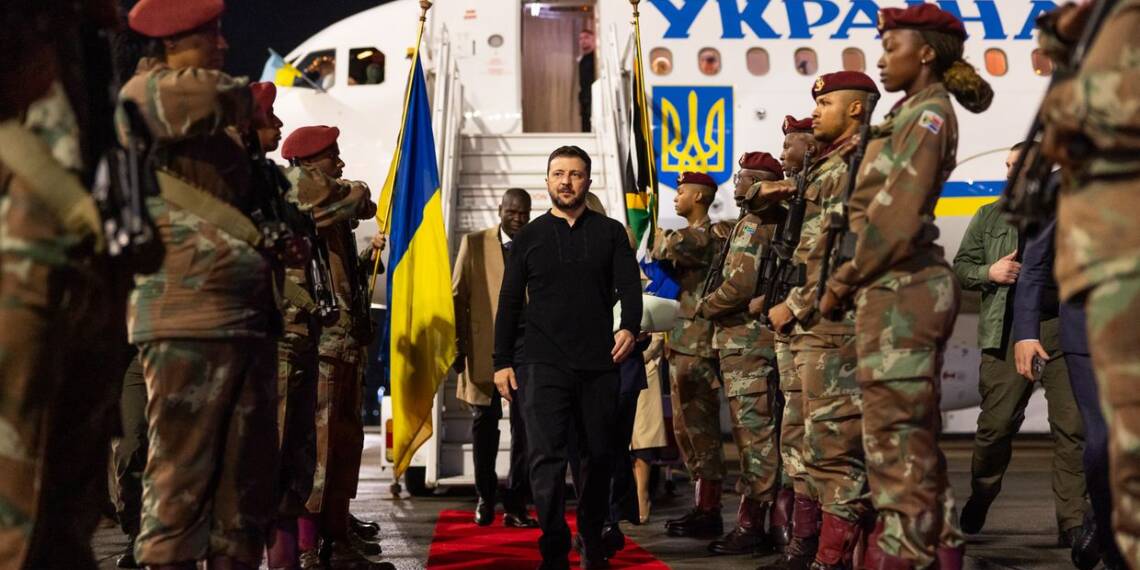In some rather surprising news, reports now indicate that Ukraine is getting deeply militarily involved in Africa. It has been reported that Kiev has supplied drones to Tuareg rebels in northern Mali. The accusations follow reports from French newspaper Le Monde, which suggested that Ukrainian drones were being used by rebels from the Coordination of Azawad Movements (CMA) to target Malian government forces and Russian Wagner mercenaries.
The Conflict in Mali
Mali has been mired in conflict since 2012, when a Tuareg rebellion in the north evolved into a broader insurgency involving Islamist militants linked to Al-Qaeda and ISIS. The central government, plagued by weak institutions and military coups, has struggled to maintain control.
In recent years, the crisis intensified as the Malian junta, which seized power in 2021, expelled French troops and increasingly relied on Russian Wagner Group mercenaries to suppress insurgents. The alliance between Mali and Wagner has drawn international criticism, especially as Wagner fighters have been accused of human rights abuses.
The rebel coalition known as the Coordination of Azawad Movements (CMA), largely composed of Tuareg factions, is seeking autonomy or independence for northern Mali, also known as Azawad. Though not ideologically aligned with jihadists, the CMA has clashed with both Malian forces and Wagner mercenaries.
Ukraine’s Role
According to reports by Le Monde and The Times (UK), Ukrainian drones and military advisors have played a role in recent CMA operations, including a notable October 2024 drone strike on a Wagner base in Goundam that allegedly killed over 20 mercenaries.
The accusations suggest that Ukraine may be supporting rebels in Mali as part of a broader strategy to counter Russian influence in Africa. Drones allegedly recovered from militants were reportedly of Ukrainian origin, and documents in Cyrillic script were found during raids by Malian forces.
“In a car abandoned by the attackers, Malian soldiers found a phone containing photos of Ukrainian security service documents, as well as a drone bearing Ukrainian writing,” a report published earlier this week claims.
“A preliminary investigation by the Malian military shows that the FPV drones were delivered to Mali via Mauritania by Ukrainian military instructors linked to Azawad fighters. It is highly likely that the Tuaregs, in turn, are sharing this equipment with JNIM as part of their alliance,” it added.
Additional documents allegedly linked to Ukraine’s military intelligence agency (HUR) were seized in the Sofara area.
“The documents indicate that Ukrainian agents coordinated terrorist attacks against FAMa near Mopti, supplied drones equipped with Ukrainian delivery systems and even carried out drone attacks on Malian positions,” the outlet reported.
The Bamada report is the latest in a series of accounts alleging Kiev’s involvement with terrorist groups in Mali and the wider Sahel. In August, Afrique Media cited military sources claiming that Ukrainian “sabotage units” had been assisting jihadist insurgents in attacks against the Malian army, including with drones provided by Kiev. Just last week, Russian Foreign Ministry official Tatyana Dovgalenko accused Kiev of funneling Western-supplied weapons to militants across Africa and training terrorist networks in the Sahel as part of “systematic efforts to destabilize the continent.”
Ukraine has categorically denied these allegations, calling them “Russian disinformation” and politically motivated. The Ukrainian Foreign Ministry stated it “does not and has never supported any armed groups in Mali.”
Why Ukraine is Involved in Mali?
Ukraine’s strategic interest in Mali, stems from its existential war against Russia. As Russia spreads its influence across Africa via the Wagner Group, Ukraine may see opportunities to strike at Russian proxies abroad, particularly in unstable regions where it can operate with plausible deniability.
This kind of asymmetric strategy mirrors how both Russia and Ukraine have expanded their confrontation into cyberspace, intelligence operations, and diplomatic alliances. By allegedly supporting groups fighting Russian mercenaries, Ukraine could be trying to offset Russia’s global reach and signal that the conflict isn’t limited to Eastern Europe.
Moreover, Mali and other Sahelian states have cut diplomatic ties with Ukraine, aligning more closely with Moscow. This adds a layer of hostility and geopolitical posturing that could motivate Ukraine to act more covertly against Russian interests in the region.
These reports will act as big shock to the region as now Ukraine is getting involved in the already complicated geopolitics of Africa. More so it is helping destabilize the nations in the Sahel region causing even more upheaval in Africa. If these reports are confirmed to the African nations and their authorities they would soon have to take drastic measures to counter this development or be prepared for further anarchy as Russia and Ukraine may make Africa and Sahel its next battleground.








